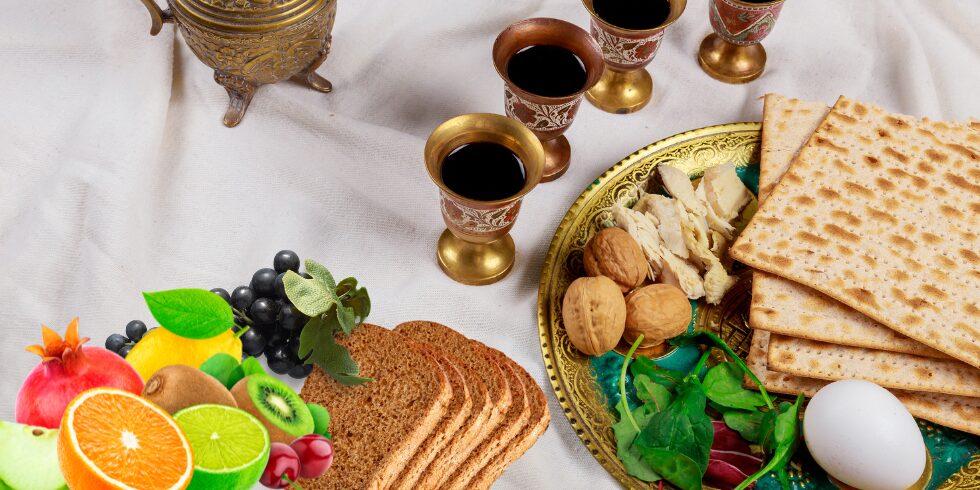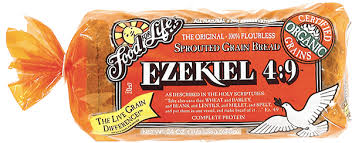
Food plays a significant role in the Bible, not only as sustenance but also as a symbol of hospitality, community, and spiritual significance. In this post, we will delve into the culinary habits of ancient times, particularly during the era of Jesus, and explore the rich tapestry of food references found throughout the Scriptures.

Culinary Habits in the Time of Jesus
During the time of Jesus, the culinary habits of the people were influenced by the agricultural practices, cultural traditions, and religious customs of the region. The diet of the ancient Israelites primarily consisted of grains, fruits, vegetables, dairy products, and meats, reflecting the abundance of produce available in the land of Israel.
Biblical References to Cooking and Food
The Bible contains numerous references to cooking, food preparation, dietary guidelines, and symbolic meals that provide insights into the culinary practices of ancient times.
In the bustling kitchens of ancient times, culinary traditions were deeply intertwined with daily life and religious practices. As we journey back to the time of Jesus, let’s explore the rich tapestry of food mentioned in the Bible and uncover the significance of these culinary habits.
Genesis 1:29 (NIV): “Then God said, ‘I give you every seed-bearing plant on the face of the whole earth and every tree that has fruit with seed in it. They will be yours for food.'” This verse highlights God’s provision of plant-based foods for humanity, emphasizing the importance of fruits, vegetables, and grains in the diet.

One intriguing reference to food in the Bible can be found in Ezekiel 4:9, where the prophet Ezekiel is instructed to make bread using specific ingredients:
“Take wheat and barley, beans and lentils, millet and spelt; put them in a storage jar and use them to make bread for yourself.” Ezekiel 4:9 (NIV). This passage describes a recipe for bread using a variety of grains, reflecting the dietary staples of the ancient Israelites.

This unique combination of grains has inspired the creation of what is now known as “Ezekiel bread.” Interestingly, the American bakery “Food for Life” has reproduced this recipe taken directly from the Bible. Specializing in healthy and organic products, this bakery often draws inspiration from Biblical verses, with their famous bread called “Ezekiel bread” being a prime example.
Ezekiel bread is celebrated not only for its historical significance but also for its nutritional benefits. Packed with protein, fiber, and essential nutrients, it serves as a wholesome reminder of the simple yet nourishing foods enjoyed by our ancestors.
Leviticus 11:1-47 (NIV): This chapter outlines the dietary laws given to the Israelites, specifying which animals are clean and suitable for consumption and which are unclean and prohibited. These laws served both practical and symbolic purposes, emphasizing purity and holiness in daily life.

Matthew 14:15-21 (NIV): The miracle of the feeding of the five thousand is a well-known story in which Jesus multiplies a small amount of bread and fish to feed a large crowd. This miracle demonstrates Jesus’ compassion for the hungry and His ability to provide abundantly for those in need.
Acts 10:9-16 (NIV): The vision of Peter’s sheet, in which he sees various animals declared clean by God, challenges traditional dietary restrictions and symbolizes the inclusion of Gentiles into the community of believers.
As we reflect on the culinary habits of the past, let us appreciate the wisdom and symbolism embedded in the foods of the Bible. From humble grains to lavish feasts, each meal carries a story waiting to be savored and shared.
God’s Requirements and Spiritual Significance
Throughout the Bible, God provides guidelines and instructions regarding food and meals, often with spiritual significance attached. Whether through dietary laws, ceremonial feasts, or symbolic meals, food serves as a tangible expression of God’s provision, presence, and covenant relationship with His people.

Avoiding Waste and Sharing with Others
In addition to honoring God’s provisions, we are called to steward the resources He has given us responsibly. This includes avoiding waste and sharing with those in need. The Bible emphasizes the importance of being good stewards of God’s blessings and caring for the less fortunate:
Matthew 25:35-36 (NIV): “For I was hungry and you gave me something to eat, I was thirsty and you gave me something to drink, I was a stranger and you invited me in, I needed clothes and you clothed me, I was sick and you looked after me, I was in prison and you came to visit me.” This passage highlights the importance of feeding the hungry and caring for those in need as a reflection of our love for God.
Luke 12:48 (NIV): “From everyone who has been given much, much will be demanded; and from the one who has been entrusted with much, much more will be asked.” As recipients of God’s abundant blessings, we are called to share generously with others and to use our resources wisely for the benefit of all.

As believers, we can learn valuable lessons from these biblical passages about the importance of gratitude, hospitality, and stewardship in our approach to food and meals. By honoring God’s provisions and following His principles of nourishment and sustenance, we can cultivate a deeper appreciation for the blessings of food and the sacredness of mealtime.
In conclusion, the culinary habits of ancient times, as depicted in the Bible, offer a glimpse into the rich tapestry of food traditions, dietary guidelines, and symbolic meals that shaped the lives of God’s people. As we explore these passages and reflect on their significance, may we be inspired to approach food and meals with reverence, gratitude, and mindfulness, recognizing the spiritual dimensions of our daily sustenance and our responsibility to steward God’s blessings with care and compassion.
With Love and Faith,
JIL